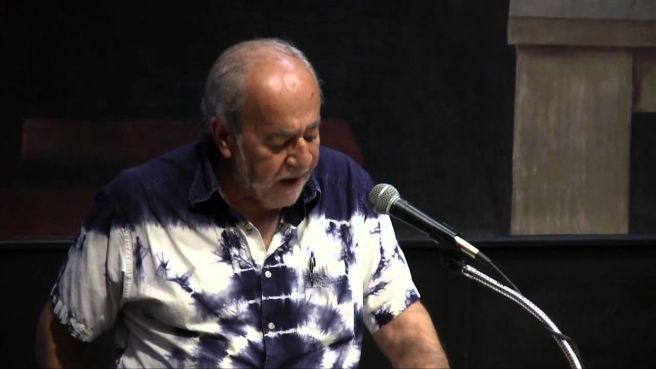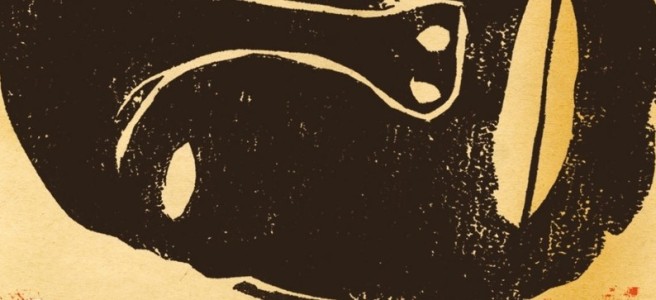Last night around 8:30 p.m. Dad stopped by for tea in the middle of my reading of Arif Dirlik’s “The Postcolonial Aura: Third World Criticism in the Age of Global Capitalism.” Naturally, our discussion turned to colonialism, something we don’t often—actually, perhaps never discussed. My dad isn’t too familiar with postcolonial studies, but he said something that I never heard him say before: “The Crusades are still going on, people just don’t realize it.” We talked about Africa and the transatlantic slave trade, and we talked about Syria. And after he left, his words stuck with me for the rest of the evening, and I realized then that my dad is a postcolonial scholar.
“My neighbors in Farmville, Virginia, are no match in power for the highly paid, highly prestigious postcolonial intellectuals at Columbia, Princeton, or Duke; some of them might even be willing to swap positions and take the anguish that comes with hybridity so long as it brings with it the power and the prestige it seems to command” (Dirlik, 573).
Dirlik was claiming to be slightly facetious when he stated that postcolonial studies actually began “when Third World intellectuals [have] arrived in First World academe” (561). I laughed but stopped to register what he meant by that.

Prior to the onset of postcolonial studies, the West’s trajectory of Eurocentrism wasn’t really challenged in a legitimized way. Master narratives of the West and modernization represented the indisputable truth (and for the most part, they still do).
What I like about what Dirlik has to say about this though is that he doesn’t mark Third World intellectuals as innocent or exempt from Western influences in their theory. In addition to repudiating master narratives he regards resisting “spatial homogenization and temporal teleology” (565) as absolutely necessary of postcolonial scholars. In order to be heard as sound intellectuals, we must distinguish what is justified belief over influences from our state of hybridity (this is something I especially need to work on). It kind of bothered me, reading what Dirlik hinted at with regards to the field of postcolonialism—that it “is a discourse that seeks to constitute the world in the self-image of intellectuals who view themselves (or have come to view themselves) as postcolonial intellectuals” (569), that these scholars use the field as a means to reclaim power (what’s with us humans and power?), meanwhile mimicking colonialist epistemology.
That isn’t to say that these scholars don’t play a serious role in counteracting cultural imperialism in academia. Their presence is absolutely vital to the challenging of First World thinkers who couldn’t otherwise tap into their innate ignorance.
Interestingly, Dirlik mentions the validity in the argument that the postcolonial condition has a direct relation to capitalism, as capitalism’s narrative is structured by Eurocentrism. He states that “even as Europe and the United States lose their domination of the capitalist world economy, European and American cultural values retain their domination” (578-579). And as a consequence of this phenomenon, the world kind of gets “jumbled up” as Dirlik puts it. With regards to First and Third Worlds, diasporas “have relocated the Self there and the Other here” (581), and so some people who live in the First World engage with the culture of their ancestors while being geographically alienated, and some from the Third World engage with the culture of the First World more directly than with that of their ancestors.
This made me think of the last time I was in Syria shopping at the Souk as a Mercedes Benz zoomed past me in the streets blasting Usher’s “Yeah” (featuring Lil Jon and Ludacris). Later during my stay, my cousins asking me if I listened to 50 Cent, to which I responded (shaking my head): “If only you knew what his lyrics meant.”
In a way, I’m newly contented with my hybridity after taking this class with Dr. Clemens. In the past I viewed being an in-between as a kind of curse—feeling neither inside the culture of my ancestors, nor the culture I resided in. I never read any Salman Rushdie, and seeing how well he wove my feelings of ambivalence into his stories in “East, West” made me realize that I am not alone (and also that I too apparently have a lot to say about my experience as a postcolonial something). I can be Miss Rehana from “Good Advice is Rarer than Rubies,” who goes against the grain, and is untroubled with thoughts of marriage or cultural norms. Or I can be exceptionally anti-capitalist (ask my friends and family—I’m nuts), as in “At the Auction of the Ruby Slippers,” even whilst I reside in a country that thrives on and promotes the merits of capitalism.
This class really has changed my perspective on the world and my place in it. And for that I am eternally grateful to my professor for offering to instruct this class (can we make it a pre-requisite for all English students?). I left my last semester at Kutztown thinking that I’d want to approach my thesis on the topic of Marxism (with the help of Shaw), and have decided that I want to delve into this week’s topic further and work it into my thesis as well. There’s so much more here in postcolonial studies that demands to be explored and developed (really trying hard not to sound like a colonist).
Transcend.
A treat, from my favorite Syrian poet Gaith Adhami (because I wanted to share more Middle Eastern awesomeness this semester):









